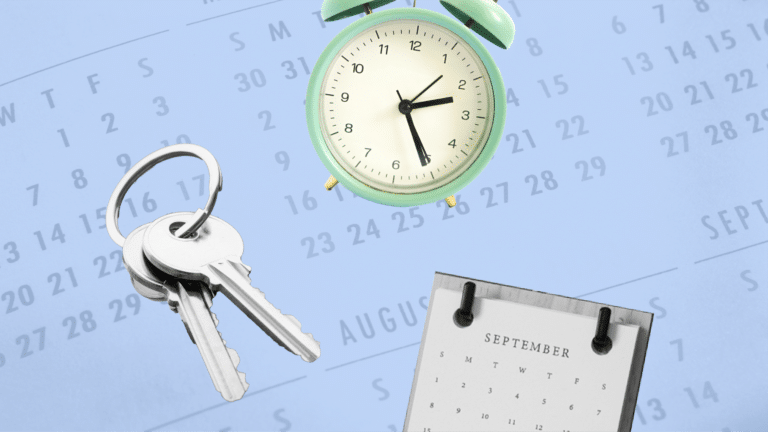You’ve probably heard from well-meaning friends or relatives that renting is just throwing money away.
That’s not entirely true, of course. Paying rent means you get a place to sleep and store your belongings. And having a place to live is nice. But once you hand over that rent check, you won’t see any of that money again. Your rent check helps your landlord build her wealth and leaves you just a little bit poorer.
And just in case the building-your-wealth argument for buying a home isn’t persuasive and you need another reason to consider ditching the rental:
All things being equal, it’s probably cheaper for you to buy a home than to rent a place to live.
Don’t need any convincing? Check out our start-to-finish guide to house hunting.
Still skeptical? Read on.
Rent Takes a Bigger Bite Out of Your Paycheck Than a Mortgage Most Places

A survey released a few weeks ago through RealtyTrac determined that the median fair market rent was higher than a mortgage payment in two-thirds of U.S. housing markets.
These researchers looked at wage data from the Bureau of Labor Statistics to come up with the average take-home pay for workers in each housing market.
Then, to figure out how much of that average paycheck a person would need to spend on housing, the researchers looked at sales prices for three-bedroom homes. They determined a median house price for each community and calculated a mortgage payment amount for that middle-of-the-pack home—assuming buyers would put in just 3% as a down payment, and including the cost of property taxes, homeowner’s insurance, and private mortgage insurance.
The researchers then compared that mortgage payment amount to the fair market rent for a three-bedroom home in that same community, using data from the U.S. Department of Housing and Urban Development. For two-thirds of the more than 500 housing markets, the RealtyTrac researchers analyzed, an average worker would get to keep a larger proportion of her paycheck if she bought a home in her community instead of renting.
You’ll Spend More to Rent Than to Buy in 100 out of 100 Metro Areas

Now, the RealtyTrac study just looked at the immediate out-of-pocket costs for renting versus buying and determined that 2/3 of renters would save money if they were instead paying a mortgage. A few months ago, Trulia’s annual Rent vs. Buy report concluded that over a short period of time, buying a home was cheaper than renting in all 100 of the nation’s largest metro areas.
The Trulia calculations and methodology aren’t quite the same as the RealtyTrac study. Trulia’s data scientists assume that a buyer will make a 20% down payment and stay in her new home for at least seven years.
But more importantly, the Trulia study considers both the current and future costs of renting versus owning, including projected inflation, expected increases in rent, costs for home maintenance, and the opportunity costs of using savings to buy a home instead of investing it. And with those added variables? Buying was the less expensive option in every single one of the 100 largest metropolitan areas in the country.
Now, the savings you could realize by buying instead of renting are more significant in some places than others. By Trulia’s calculations, buying cuts your housing costs in half in Miami, West Palm Beach, and Fort Lauderdale; whereas buying is only about 17% cheaper than renting in Honolulu. The RealtyTrac study assumes you’re looking for a three-bedroom home. Your actual housing needs might be more or less than that.
So Why Aren’t You a Homeowner Already?

For many would-be buyers, the down payment is a real hurdle. Both of these studies assume a potential buyer has the resources to come up with a down payment. Right now, the median price of a home for sale in the US is just shy of $235,000. Depending on where you live, the average price of a home for sale in your area could be much more. And even with just 3% down, that’s not a small chunk of change. (Yes, you can buy a home with just 3% down.) It can be especially hard to save enough for a down payment if you’re paying a sizable portion of your income in rent.
(If you’re thinking about buying soon, make sure you’re not doing these three things.)
Still, it’s worth checking the numbers for the cost of renting versus buying in your own community. Many people—especially younger people—assume that owning a home is out of their financial reach. The reality is that buying a home costs less than renting in most parts of the country. When you decide to buy, you’ll almost definitely pay less than you would to rent. And your housing dollars can add to your bottom line while you’re keeping a roof over your head.
Ready to make it happen? Get started here.







